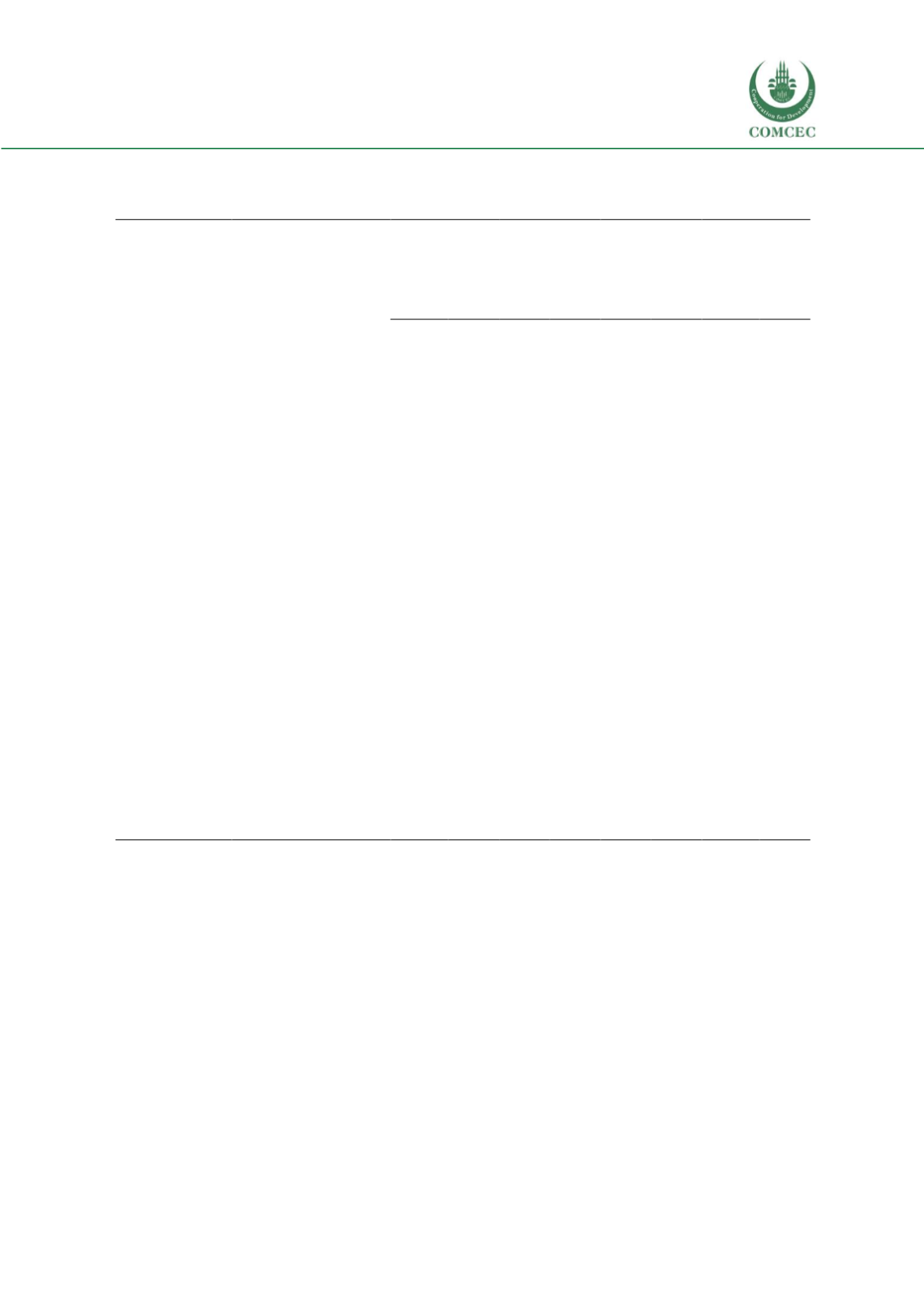

Education of Disadvantaged Children in OIC:
The Key to Escape from Poverty
231
ANNEX 3: TURKEY
Annex Table 3 Turkey DHS 2003 and 2013 Cross-tabulations
Attendance
in school
(6-11 year
olds)
Attendance
in school
(12-15 year
olds)
Finishing 5
years of
education
(12-15 year
olds)
Finishing 8
years of
education
(16-18 year
olds)
2003 2013 2003 2013 2003 2013
2003 2013
Urban/Rural
Location
Rural
85.1
92.1
75.8
87.6
83.7
95.4
56.9
89
Urban
89.9
92.3
86.5
94.2
89.9
98.4
73.4
93.3
Region
East
78.2
90.3
71.6
87.2
70.2
94.8
48.8
84
South
89.8
90.6
84.6
92.9
89.3
97.4
71.3
94
Central
89.5
92.8
90
95.7
96.4
99.1
78.3
97.8
West
94.3
93.5
84.7
93.8
93.6
98.8
71.6
93.4
North
90.6
95.8
87.4
96.2
94.7
98.4
75.6
97.5
Household
head's
education
No education
76.8
87.8
67
86.2
67.8
93.1
41.6
77.1
Primary education
88
92.6
79.6
90.9
87.8
97.8
64
92.2
Secondary Education
93.6
92.1
94.1
95.5
96.9
98.9
87.2
96.3
Higher Education
93.2
95.2
99.3
98.7
97.3
98.5
97.2
99.8
Number of
children at
home
5 or more children
75.3
84.9
64
84.3
62.8
91.7
27.9
75.7
3-4 children
88.7
91.6
82.1
92.4
85.2
97.5
43
81.5
1-2 children
92.8
94.2
88.1
94.2
93.9
98.3
71.1
93.2
Asset quintiles
Quint 1 (Poorest)
79.1
88.5
65.4
83.5
68.5
94.5
43.9
80.7
Quint 2
86.7
92.3
78.5
91.4
86.8
97.6
58.4
91.8
Quint 3
92.6
92.6
86.4
95.1
93.3
98.7
71.7
94.9
Quint 4
91.2
93.9
89.8
97
95.5
99.4
75.2
95.5
Quint 5 (Richest)
94.6
95.6
97.2
99.2
97.4
99
92.8
99.8
Language
Non-Turkish
79.2
88.5
69.6
86.3
70
94.8
41.4
79.4
Turkish
91.9
94.3
88.3
95.3
94.7
99
77.3
97.1
Gender
Female
87.5
93.3
75.6
90.5
85
97.2
56.5
90.2
Male
89.1
91.3
89.5
94.6
90.3
98
79.3
94.3
TOTAL
TOTAL
88.3
92.3
82.7
92.5
87.7
97.6
68
92.3
Note: Authors’ calculations using DHS 2003 and 2013. Language is not the language of the child but instead the
mother tongue of women responding to the women's questionnaire. If there are more than 1 woman in the
household responding to the questionnaire the mode is taken. Hence this variable proxies the language spoken
in the household.
















